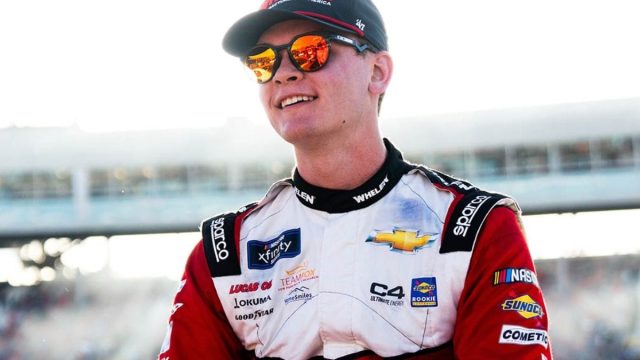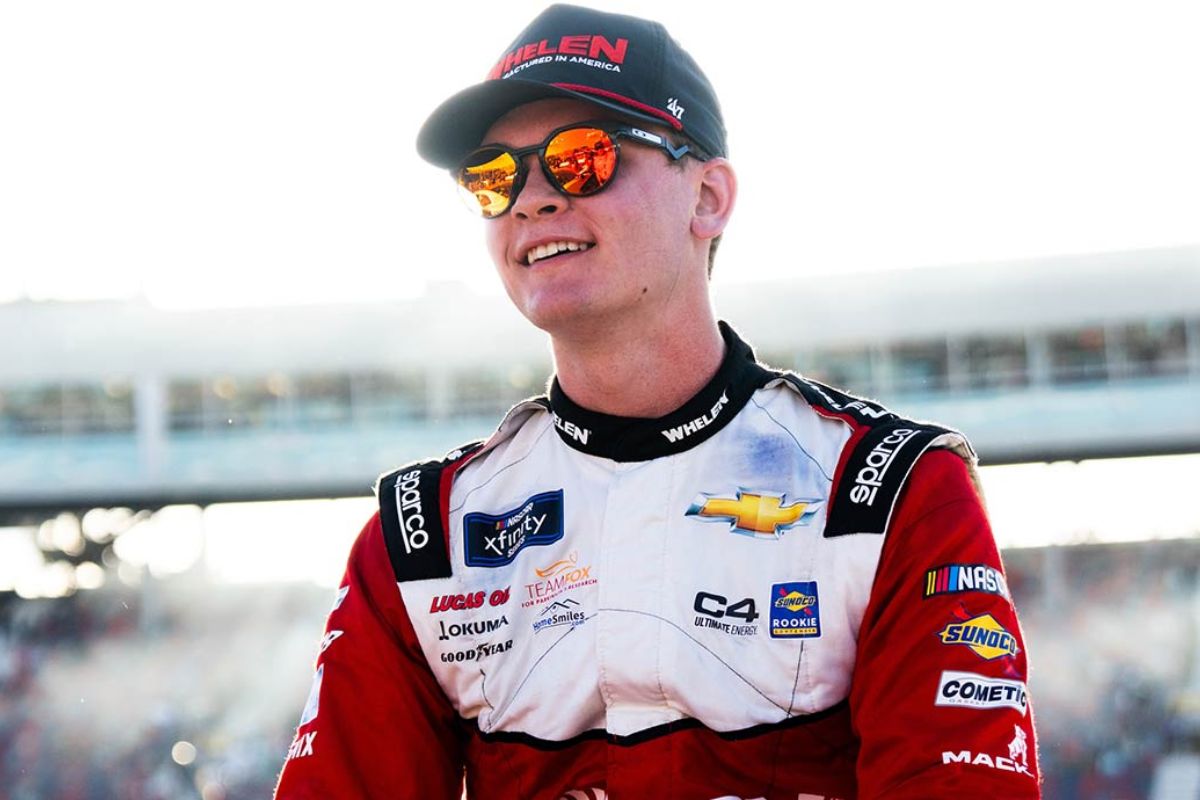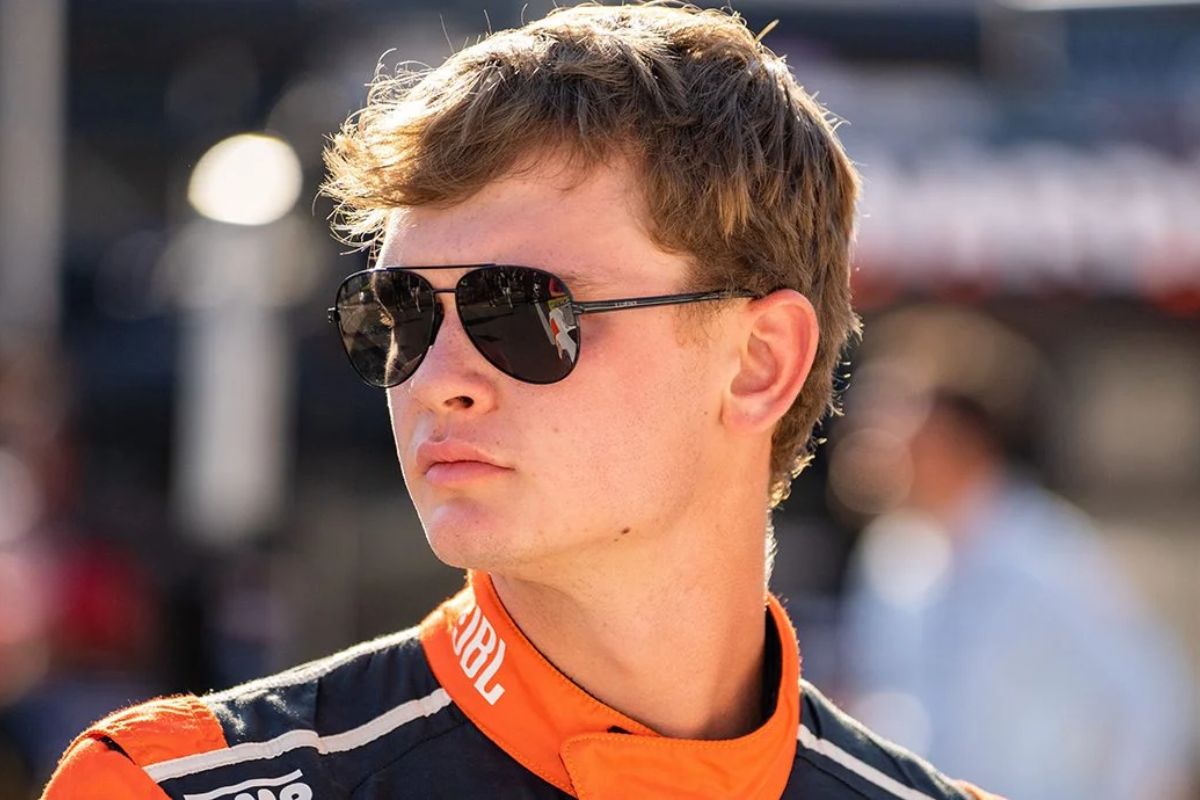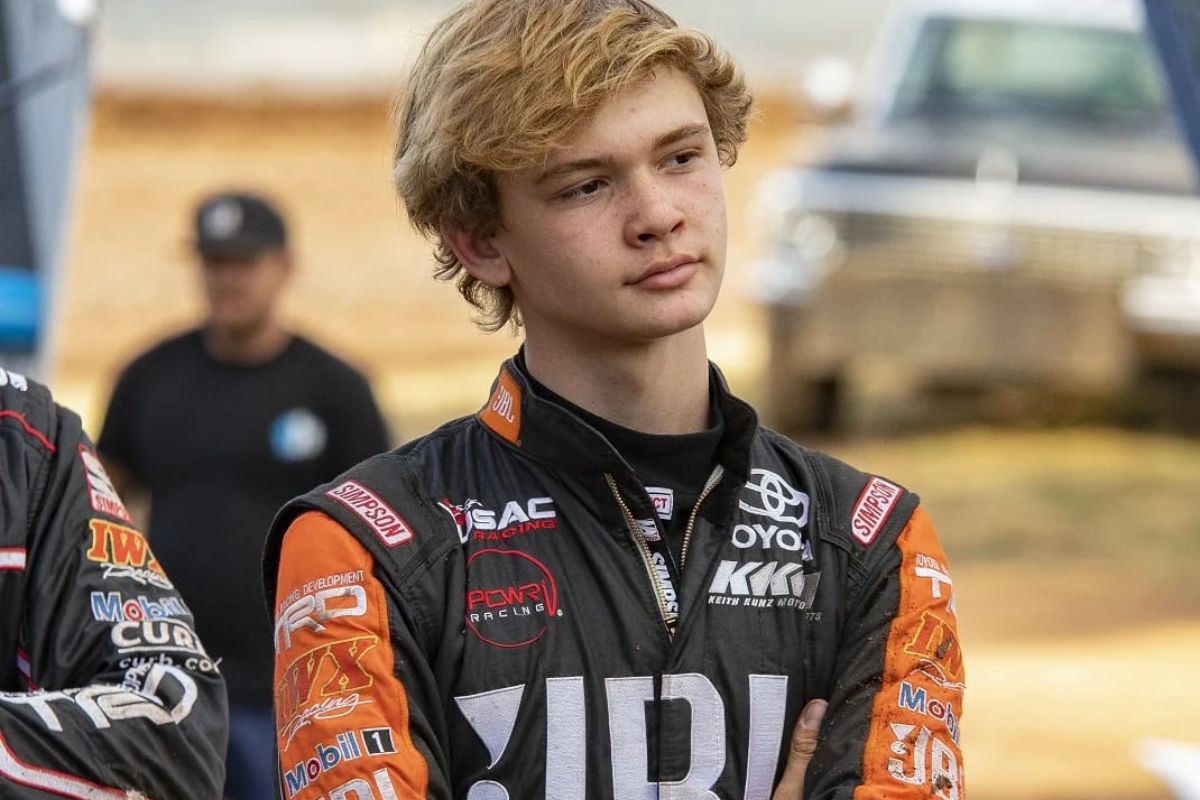Jesse Love on the Challenges of Guiding Austin Hill: Jesse Love‘s recent reflections on his role as a spotter for Austin Hill during the Chicago Street Course race show the intricate dynamics of racing communication under stress. The challenges he faced, particularly the disruptive echo effect on the radio, reveal not only the technological hurdles that can arise but also the critical importance of clarity in high-stakes environments. As Love navigated these complexities, his insights into adaptability and teamwork provide a compelling narrative about the unseen stresses of motorsports.
Key Highlights
- Jesse Love faced communication challenges as a spotter for Austin Hill during the Chicago race, particularly with radio echo effects.
- Delays in communication impacted performance, especially in high-speed racing scenarios requiring quick decision-making.
- Adaptability was crucial as Love maintained composure amidst technical difficulties, showing his observational and tactical skills.
- The experience highlighted the importance of effective teamwork and trust within the racing environment for optimal performance.
Jesse Love’s Career Progression
Jesse Love’s rapid ascent in motorsports, marked by his historic achievements and tactical partnerships, highlights his potential as a formidable competitor in the NASCAR Xfinity Series. As the youngest-ever champion of the ARCA Menards Series, Love’s path has already established him as a key player in the racing world. By bypassing a year in the Truck Series, he has thoughtfully positioned himself to make an immediate impact in the Xfinity Series, a decision that emphasizes ambition and confidence in his abilities.
His early performances show a promising skill set, with multiple top-five and top-ten finishes showing his adaptability and competitive drive. Such results are not merely a product of talent; they reflect a deep understanding of race dynamics and the ability to learn quickly from the seasoned competitors around him. Love’s willingness to engage with veteran drivers, particularly his teammate Austin Hill, further shows his commitment to growth and mastery of the sport.
In a landscape where experience can dictate success, Love’s proactive approach to seeking guidance shows a maturity beyond his years. This enthusiasm to learn from those who have gone through the complexities of the NASCAR circuit will be crucial as he prepares for a future shift to the Cup Series.
Love’s Spotting Experience in Chicago
Building on his experiences with veteran drivers, Love recently faced a new challenge in Chicago as he took on the role of spotter for teammate Austin Hill. This role tested his adaptability in a different aspect of racing communication. Spotting, a crucial function in the world of motorsports, demands not only acute situational awareness but also the ability to convey information swiftly and clearly.
However, Love encountered considerable hurdles during this endeavor. According to his account on Freddie’s NASCAR Racing Podcast, the communication system posed a unique challenge—the echo effect.
“I spotted, for context, at Chicago for Austin Hill and it was honestly pretty hard. Like, I knew what I wanted to say, however the feed…so, okay hard to explain but when you talk on the radio and you key up, you hear yourself talking in the radio. But it was delayed like half a second.” – (hill)
This delay can be particularly disorienting in high-speed scenarios, where timing is vital, and split-second decisions can determine the outcome of a race.
Love’s experience in Chicago highlights the complexity of spotting, emphasizing the importance of not only technical ability but also mental agility. Adaptation is key; a spotter must synthesize real-time data and relay it effectively, despite potential communication barriers. This role requires not just knowledge of the track and the car’s performance but also an understanding of how to navigate the subtleties of radio communication.
Through this challenge, Jesse Love has gained invaluable insights that will certainly improve his future endeavors, both as a driver and a support team member. This reinforces the notion that mastery in racing extends beyond mere driving skill.
Love’s Struggles and Advice from Peers
Struggling to go through the complexities of radio communication during the race, Love found himself in need of specialized support and guidance from his peers, emphasizing the often-overlooked challenges faced by spotters in high-stress environments. The echo he experienced impeded his ability to articulate instructions, rendering him nearly speechless at critical moments.
Love’s frank admission, “I couldn’t speak. I literally could not speak, get the words out. So, I end up talking both headphones off and just talking in the microphone.” highlights the intense strain spotters face, where clarity and precision are paramount for driver safety and performance.
In a surprising twist, his friend Connor Zilisch provided a practical solution that Love had overlooked: unplugging the radio. This moment of clarity not only alleviated Love’s immediate struggle but also showed the importance of peer support in racing. The sympathetic reactions from seasoned spotters Brett and Freddie Kraft further emphasized the fellowship and collective wisdom within the racing community. They recognized that even experienced individuals can falter under stress, and it is through shared experiences that they can derive solutions and support.
“Nobody likes that, I promise you.” – (Kraft)
Radio Echo Issues Explained
Experiencing radio echo issues is a common challenge for spotters in racing, greatly impacting their ability to communicate effectively with drivers during high-pressure situations. This phenomenon can lead to confusion, misinterpretation, and ultimately hinder a driver’s performance on the track. Jesse Love’s recent struggles with radio echo serve as an example of this hurdle.
The complexities of radio communication in racing are influenced by numerous factors, including equipment technology and the unique environment of a race. Spotters like Freddie Kraft have noted that while these issues can be routine, they can still catch even seasoned professionals off guard.
The latest radio models, while advanced, are still being fine-tuned for peak performance. In Love’s case, the echo prompted reactions similar to Bubba Wallace’s incredulous remark about sounding ‘drunker than usual.’ Such responses highlight the critical importance of clear communication in racing, where split-second decisions can define outcomes. Consequently, understanding and addressing radio echo issues is vital for spotters aiming to improve their effectiveness and support their drivers in achieving success on the track.
Lessons and Adaptation for Jesse Love
Adapting to the unpredictable nature of racing requires not only specialized skill but also a keen awareness of one’s surroundings, and Jesse Love has shown a remarkable ability to balance both elements throughout his career. His experiences highlight the necessity of maintaining composure and presence of mind, particularly when going through unfamiliar territory on the racetrack. The challenges he faced while guiding Austin Hill in the Chicago Street Course race emphasized the importance of attentiveness—a skill Love has consistently exhibited.
In racing, drivers are often thrust into situations where they lack intimate knowledge of the track. Love’s adeptness at compensating for this gap through acute observational skills and tactical decision-making has been vital. This adaptability is not merely a reactionary measure but rather a proactive mindset that fosters learning and growth. By changing his alliances, Love displayed a willingness to accept new challenges, further reinforcing his belief in the importance of adaptability.
Moreover, Love’s track record serves as an indicator of his commitment to continuous improvement. His ability to analyze and adjust in real-time not only improves his performance but also supports his colleagues—like Hill—by instilling confidence and fostering collaboration. The lessons learned from these high-pressure environments are indispensable, providing a framework for future encounters.
News in Brief: Jesse Love on the Challenges of Guiding Austin Hill
The challenges faced by Jesse Love while spotting for Austin Hill during the Chicago race highlight the critical nature of communication in racing environments. The complications arising from radio echo effects showed the need for adaptability and clarity in decision-making.
Love’s experiences reveal not only the specialized difficulties inherent in the role but also the importance of continuous learning and resilience in overcoming obstacles. Such insights contribute to a deeper understanding of the complexities involved in motorsports.
ALSO READ: Jesse Love Erupts With Anger After Iowa Race Came to a Sudden Halt



